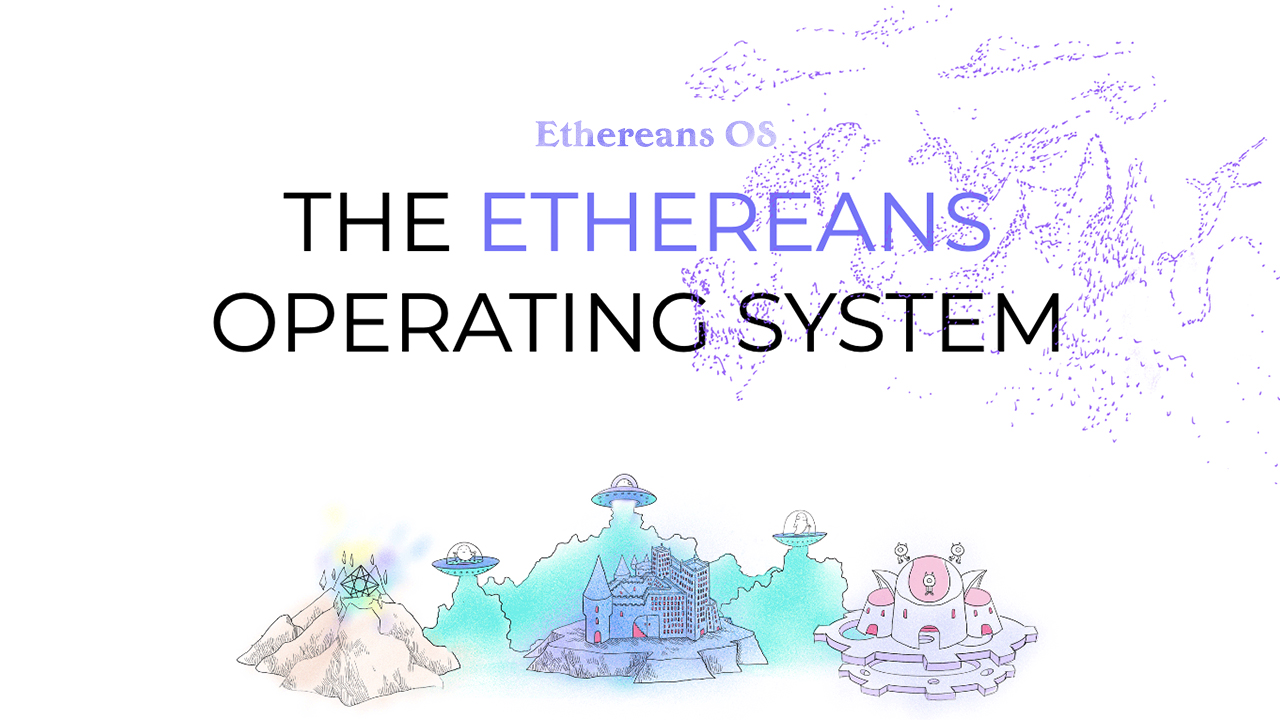EthereansOS, the first completely decentralized DAO that generates revenue by providing decentralized tools for projects to interact with DAO technology, DeFi, and NFTs is all set to feature the new release on 23rd March this year. The release shall take place at a prominent platform at the Bilderberg 2023 event which is an immense honor for all the Ethereans. EthereansOS is an on-chain operating system that will be built on top of Ethereum, a general-purpose platform for governance, development, decentralized finance, tokens, and anything else that the network makes possible.
What is The Etherean Operating System?
EthOS is a universal Ethereum platform for accomplishing anything. It includes four protocols, all of which are on-chain, decentralized, customisable, and interconnected. Factories provide a secure new method for developers to code and earn money. Items are dynamic tokens that may be used in any application. Organizations are vehicles for granular governance. Covenants are DeFi tools that are based on an AMM Aggregator. Builders may combine and combine them as they see suitable. Factories and the model contracts they deploy power everything on EthOS, including EthOS itself. These contracts, which include tamper-proof cores, may be duplicated and altered by anybody to fit a wide range of requirements. Any developer may create a Factory and even programme it to generate income. All Factories share a codebase and are offered in a public marketplace on the platform.
Overpowering Tokens on EthereansOS
On Ethereum, Items are totally interoperable tokens. They can operate as both ERC20s and ERC1155s, can do everything other tokens do, and are natively supported by all apps. They can also do actions that no other token can. Items from multiple Collections may be combined in a single transaction, and they can all have dynamic on-chain information. All ERC20s, ERC721s, ERC1155s, and ETH may be wrapped as Items and so get practically all of the Item standard’s features. Wrap any Collection’s NFTs into a Deck, a fungible source of Items. Decks provide NFT communities direct access to the DeFi and Governance worlds for the first time. Native Items, which are clones from the Items Factory, have all of the Item standard’s characteristics, including the ability for their Collections to have Extensions. This enables you to tweak their logic to the point that you can use them to develop cutting-edge apps without making any assumptions about their basic security.

The factory-based approach
A factory-based approach also allows for a high degree of customisation in a secure setting. In reality, the code of a cloned contract may be changed with particular parameters selected by developers during contract deployment and setup, and it can also be expanded. The EthereansOS technology enables the use of Extensions, which are one or more smart contracts linked to the cloned contract and extend the on-top functionalities as well as the possibilities for interaction and external integration while not allowing modification of the core and thus the basic functionalities. As a result, you have security since the contract and therefore the core is copied from a model, but you also have customisation because you can connect an extension on top.
Please check the Ethereans website for more info. Also, check out their social media so you don’t miss any updates.
Twitter: https://twitter.com/ethereanslabs
Instagram: https://www.instagram.com/ethereanslabs
Discord: https://discord.gg/ethereanslabs
Youtube: https://www.youtube.com/c/EthereansLabs/

